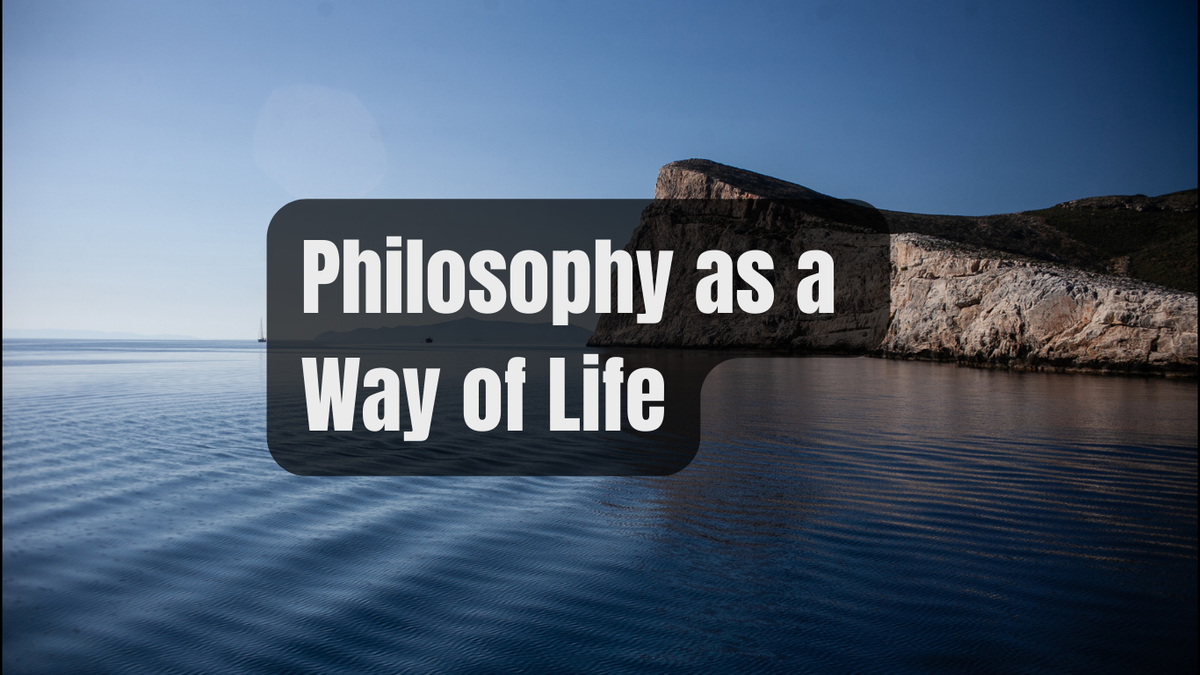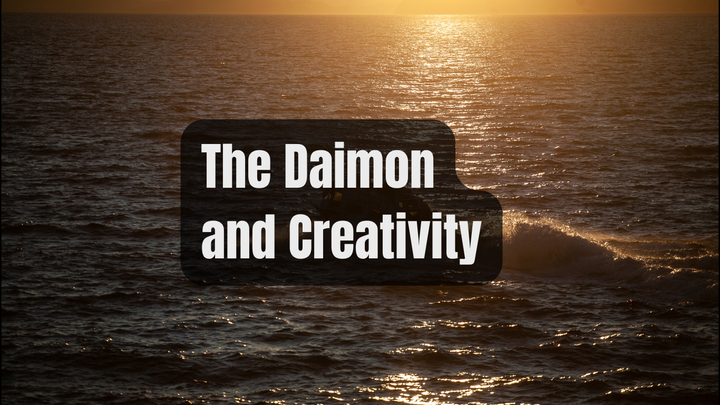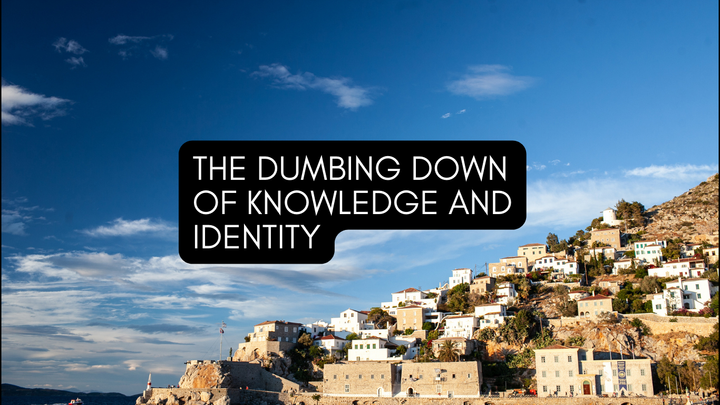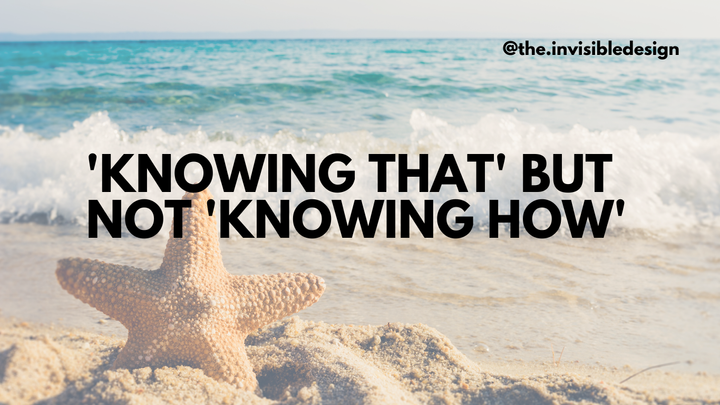Philosophy as a Way of Life: Lessons from Greek Philosophy for the Modern World
Authenticity, continuous reflection, and preparation for death are central themes in ancient philosophy. These ideas inspire living a harmonious life: aligning actions with words and thoughts. Socrates, through his attitude toward death, exemplifies consistency between speech and action.

Introduction
Continuous reflection and preparation for death are central themes in ancient philosophy. These ideas inspire living a harmonious life: aligning actions with words and thoughts. Socrates, through his attitude towards death, offers an example of consistency between speech and action.
The thesis of this essay is that the issue of harmony between discourse and action remains relevant in contemporary times, and the methods by which Greek philosophy teaches us to achieve this harmony are timeless. Even though we live in a world dominated by discrepancies between statements and actions, the teachings of this philosophy can provide lasting solutions to maintain personal coherence.
Consistency Between Speech and Action in Socratic Philosophy
In Plato's "Phaedo," Socrates' death is presented not as a tragic end but as a liberation of the soul from the "prison" of the body. Socrates faces death with calm and serenity, seeing it as a necessary transition to a higher existence. Thus, we observe Socrates' belief in the immortality of the soul and the value of a philosophical life as preparation for death. Socrates demonstrates through his attitude towards death that he remains faithful to his entire life, viewing death as liberation rather than something frightening. We see him behave in the spirit of how he lived his life, remaining consistent between what he preached and what he practiced.

Socrates is described as calmly conversing with his disciples just before drinking the poison. Although they are troubled and distressed, Socrates remains serene, considering death as a release of the soul from the body. This is evident from the beginning of the dialogue, where Phaedo recounts to Echecrates how Socrates spent his last hours. (Plato, 58e-59a)
Plato presents Socrates' death not as a tragic end but as a triumph of philosophy over human limitations. An important element of this dialogue is the "pharmakon" (poison), which in ancient Greek has a double meaning: poison and medicine. The poison that Socrates drinks is seen not as a means of death but as a cure for the liberation of the soul. What seemed poison from the perspective of the many (the Athenians) from another perspective, philosophical, the poison was actually the cure. This is what philosophy does. We learn to see things differently, from another perspective. The pharmakon drunk by Socrates, initially described as causing death, is re-signified as a cure at the end of the dialogue. This reflects the idea that death can serve to heal from the limitations and sufferings of earthly life, facilitating the soul's passage to a higher existence.
Harmony Between Discourse and Action in the Contemporary World
However, in the contemporary world, applying these teachings may seem difficult. People face the fear of death and isolation, and the real problem is related to the lack of consistency among people, the lack of harmony between who they are and how they present themselves. The fear of being judged and the desire to be accepted make us present a distorted version of ourselves, leading to a dissonance between what we do, what we think, and what we show to the world. This discrepancy becomes evident in moments of crisis when our true characteristics are revealed.
Death is one of those moments of crisis, especially because it is fraught with uncertainty. We do not know when it will happen. This issue is also addressed in Phaedo through Socrates' execution, which coincided with a festival, referencing the myth of the Minotaur.
The Athenians sent a ship to Delos to thank the god Apollo for helping Theseus save seven boys and seven girls from the Minotaur. "Chance" (meaning fate) decreed that from the moment the ship is ready to leave, the festival begins, and executions are not permitted. Apollo symbolizes life (the sun, the god of life), so this is a celebration of life that cannot be desecrated by an execution. We know when the ship departs but not when it returns, showing how even Socrates did not know when he would die, not knowing how long he had to wait for the ship's return. Thus, he had a lot of time knowing he was going to die but not when, and this is a metaphor for our lives. Even so, Socrates remained faithful to his beliefs, and despite this oppressive wait, he viewed death as he always had, maintaining his values and beliefs intact.
There are modern, even contemporary, philosophers and thinkers who support this philosophy and keep it relevant. Virginia Woolf stated that a constantly changing self is a self that continues to live (Woolf, 1942), and Sam Harris asserts that "sincerity, authenticity, integrity, mutual understanding—these and other sources of moral wealth are destroyed the moment we misrepresent our beliefs, whether our lies are discovered or not" (Harris, 2011, p.12).
Philosophy as a Method of Self-Examination
Furthermore, we come to discuss philosophy as a method of continuous investigation. Philosophy, by its very nature, offers a framework through which we can counteract the problem of inconsistency between speech and action. Socrates argues that only an examined life is worth living, meaning through continuous introspection and self-analysis. True philosophy is a permanent doubt, but evidently within the limits of a balanced existence.
Thus, philosophy, as presented in detail in Plato's "Phaedo," particularly in section 60e-61a, is not limited to a simple collection of knowledge or theories but becomes a way of life. In this section, Socrates questions himself, asking whether he correctly understood what the gods urged him to do and whether he lived a virtuous life. This moment of introspection illustrates the essence of philosophy: constant doubt and critical examination of one's beliefs and actions, even when it may seem paradoxical. The Socratic approach to living in questions, rather than in absolute certainties, offers a valuable model for navigating the complexities of modern life.
Currently, Maria Popova, in "The Marginalian," beautifully supports the idea of analyzing and changing one's life, which is in line with ancient Greek philosophy: “Change—of mind, of life—is also painfully difficult because it is a form of renunciation, a special case of those necessary losses that shape our lives; it requires letting go of something—a way of seeing, a way of being—for something new to flourish along the vector of ‘endless unfolding’ that is a life lived fully, something that leaves your new emerging self better met” (Popova, 2024).
Pierre Hadot, in his work "What is Ancient Philosophy?", argues that ancient philosophy should not be understood merely as a collection of theoretical discourses but primarily as a way of life, where dialogue and continuous doubt are essential. Hadot describes philosophy as a spiritual exercise, where personal transformation is as important as the accumulation of knowledge. He asserts that philosophical practice, in the view of the ancients, was inseparable from the way philosophers lived their daily lives.
A contemporary method inspired by ancient Greek philosophy, which can help us find coherence, meaning, and apply this constructive doubt, is philosophical counseling. Modern philosophical counseling, through the open philosophical dialogue between counselor and counselee, engages in a search for wisdom aimed at enrichment and self-understanding (Lahav, 2001, p.1).
Self-examination can become a saving activity, especially in the context of technological development. AI (Artificial Intelligence) systems are becoming increasingly intelligent and capable of realistically imitating human actions. In this context, rediscovering oneself and questioning our identity to try to reinvent ourselves can be our salvation.
A practical example is the state of Singapore, which recently approved a grant of 4,000 Singapore dollars for all people over 40 years old to obtain a second degree in new fields such as technology, art, or humanities. This is where applied philosophy comes in: if people do not rediscover themselves, do not investigate, do not question who they are, and do not ask questions about who they could be, how will they be able to enjoy this facility, and more importantly, how will they survive this major change?
Thus, people can use philosophy in an applied way to save themselves from themselves and from the possible dangers brought by technological progress. Regardless of age, social status, or personal fears, people can fight against social norms, outdated beliefs, or narrow visions to lead a better and more beautiful life. The worst thing that can happen to an individual is to believe that they know who they are, accept themselves, and cannot change (Totu, 2024).
However, in contrast to the ancient view on the necessity of investigation for a virtuous life, there are modern trends in psychology that promote the idea of unconditional self-acceptance. This idea is supported by self-help literature and some currents in psychology, which neglect rigorous examination and self-improvement.
Psychologists like Jordan Peterson, who constantly uses examples from Greek philosophy in his lectures, argue that unconditional self-acceptance is problematic and that individuals must constantly aspire to become better. In "The Phenomenology of the Divine" from his series of biblical lectures, Peterson emphasizes that passive self-acceptance can hinder personal development and that it is essential to confront our deficiencies to progress. He argues that it is not enough to accept yourself as you are, but you must aspire to be better. For these and other equally controversial but correct statements, he is often criticized, similar to Socrates. Thus, even in contemporary times, society blames those who promote correct values, who inspire harmoniously lived lives; only now, poison is no longer used, but "cancel culture."
Conclusion
In conclusion, philosophy is a way of life, but it is hard to sustain. It requires confronting ourselves, involves constant self-examination and rethinking everything we know. It is difficult to live in harmony with our beliefs and values and to maintain consistency between speech and action. It requires effort and especially accepting painful truths about ourselves (Popova, 2024). Even though we live in a world dominated by superficiality and fear of truth, the teachings of Greek philosophy remain timeless and applicable, perhaps the only real tools we have against a social darkness illuminated by Instagram filters.
In the modern era, where trends of unconditional self-acceptance are predominant, it is vital to fight against this thinking that stifles development. In a society marked by dissonance between who we are and what we show to the world, sincerity, especially with ourselves, and integrity remain fundamental to individual and collective well-being.
Valuing the teachings of ancient philosophy can offer solutions for maintaining authenticity in modern life. An examined life, lived in harmony, engaged in the search for truth, can lead us to eudaimonia.



